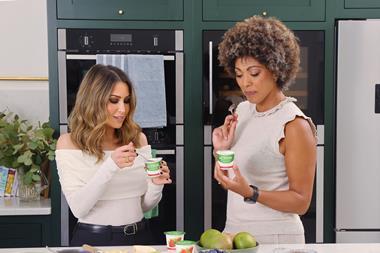A shortage of milk this autumn could lead to the UK having to import more Cheddar next year as manufacturers struggle to meet demand.
Present production rates indicate there could be a shortage of 500,000 litres of milk per day during the low production period of October and November, according to industry experts Kite Consulting.
Less milk was likely to be available to cheese manufacturers, said Kite’s Neil Blackburn, though it was too early to estimate how much would have to be imported.
“There’s a theoretical milk shortage,” he said. “The dairies that need milk for fresh products and the cheesemakers will stop making as they’ll sell on their milk. We’ll see less Cheddar being made from the end of October to December and more imported from early next year.”
UK milk production fell by 102 million litres over the first four months of the 2008/09 quota year, compared with 2007/08. This was caused by falling milk yields per cow as a result of poor silage made in 2007 and worsening herd fertility, as well as a lack of replacement heifers following herd sales and increased culling post-TB.
Some 200 million litres less would be produced this season than last year, compounding the tight supply caused by last year’s record 313-million-litre fall in production, Kite predicted.
“We are now at the minimum amount of milk the UK needs,” said Blackburn. “We can’t drop any lower.
Farmers needed to see higher prices to have the confidence to invest in greater production, Blackburn said, adding that Tesco’s twice-yearly negotiations take place next month, with the industry seeking a 2ppl-3ppl rise.
“With milk supply continuing to fall and UK dairy products becoming more competitive due to the weakening of the pound, milk prices should continue to rise in the short term,” Blackburn explained.
Present production rates indicate there could be a shortage of 500,000 litres of milk per day during the low production period of October and November, according to industry experts Kite Consulting.
Less milk was likely to be available to cheese manufacturers, said Kite’s Neil Blackburn, though it was too early to estimate how much would have to be imported.
“There’s a theoretical milk shortage,” he said. “The dairies that need milk for fresh products and the cheesemakers will stop making as they’ll sell on their milk. We’ll see less Cheddar being made from the end of October to December and more imported from early next year.”
UK milk production fell by 102 million litres over the first four months of the 2008/09 quota year, compared with 2007/08. This was caused by falling milk yields per cow as a result of poor silage made in 2007 and worsening herd fertility, as well as a lack of replacement heifers following herd sales and increased culling post-TB.
Some 200 million litres less would be produced this season than last year, compounding the tight supply caused by last year’s record 313-million-litre fall in production, Kite predicted.
“We are now at the minimum amount of milk the UK needs,” said Blackburn. “We can’t drop any lower.
Farmers needed to see higher prices to have the confidence to invest in greater production, Blackburn said, adding that Tesco’s twice-yearly negotiations take place next month, with the industry seeking a 2ppl-3ppl rise.
“With milk supply continuing to fall and UK dairy products becoming more competitive due to the weakening of the pound, milk prices should continue to rise in the short term,” Blackburn explained.



















No comments yet